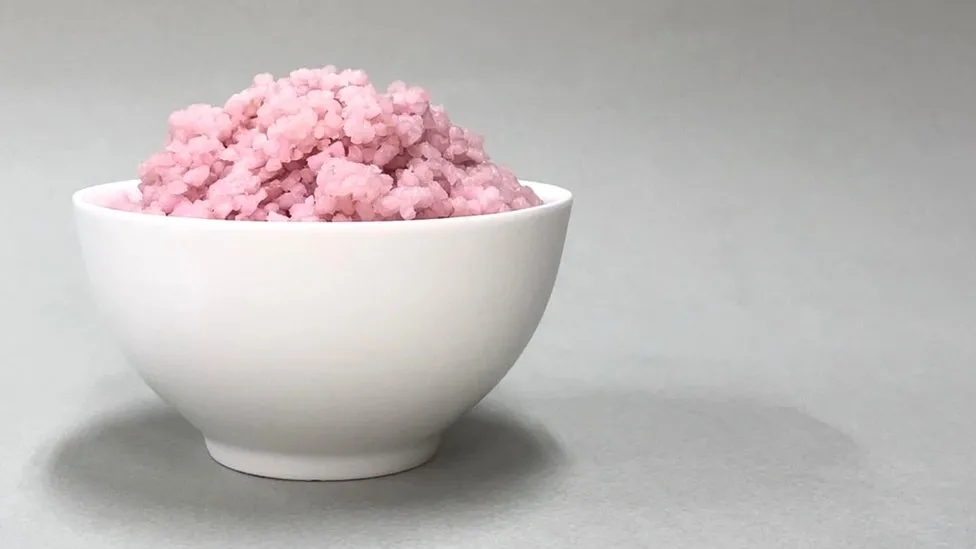Scientists grow 'meaty' rice hybrid food for protein kick
Scientists have created a new type of hybrid food - a "meaty" rice that they say could offer an affordable and eco-friendly source of protein.

The porous grains are packed with beef muscle and fat cells, grown in the lab.
The rice was first coated in fish gelatine to help the beef cells latch on, and the grains were left in a petri dish to culture for up to 11 days.
The researchers say the food may serve as "relief for famine, military ration, or even space food" in the future.
It remains to be seen whether consumers would take to it if it gets to market.
The hybrid rice is apparently a bit firmer and brittler than regular rice, but packs more protein, Matter journal reports.
According to the team at Yonsei University in South Korea, it has 8% more protein and 7% more fat.
And, compared to regular beef, it has a smaller carbon footprint, since the production method eliminates the need to raise and farm lots of animals.
For every 100g (3.5oz) of protein produced, hybrid rice is estimated to release under 6.27kg (13.8lb) of carbon dioxide, while beef production releases eight times more at 49.89kg, they say.
Researcher Sohyeon Park explained: "We usually obtain the protein we need from livestock, but livestock production consumes a lot of resources and water and releases a lot of greenhouse gas.
"Imagine obtaining all the nutrients we need from cell-cultured protein rice.
"Rice already has a high nutrient level, but adding cells from livestock can further boost it."
She said: "I didn't expect the cells to grow so well in the rice. Now I see a world of possibilities for this grain-based hybrid food."
'People need convincing'
Rice appears to provide a scaffold or structure for the meat cells to grow in, and also gives them nutrients.
The team is not the first to explore lab-grown or cultivated meat products.
Since the first lab-grown burger was unveiled in London in 2013, dozens of companies around the world have joined the race to bring affordable cultivated meat to the market.
Singapore recently started selling the world's first cultivated chicken product to customers.
Meanwhile, Italy has backed a bill to ban laboratory-produced meat in order to safeguard the country's food traditions.
Critics point out there is nothing synthetic about lab-grown meat - it is made by growing natural cells.
Prof Neil Ward, an agri-food and climate specialist at the University of East Anglia, said this type of research holds promise for the development of healthier and more climate-friendly diets in future, but that some people needed convincing.
"While data on cost and climate impact look very positive, a critical test is around public appetite for these sorts of lab-developed foods," he said.
"With lab-based alternative meats in general, the greatest potential is probably in replacing processed meats rather than prime cuts."
Bridget Benelam from the British Nutrition Foundation said: "Developing a diet that supports health for both people and planet is a major challenge. This study demonstrates an innovative new approach that could contribute to the solution."
But she added: "The findings represent a relatively small increase in the protein content of rice, which isn't a high protein food. So further work would be needed if this technology were to be used as an alternative protein source to traditional animal products.
-bbc






